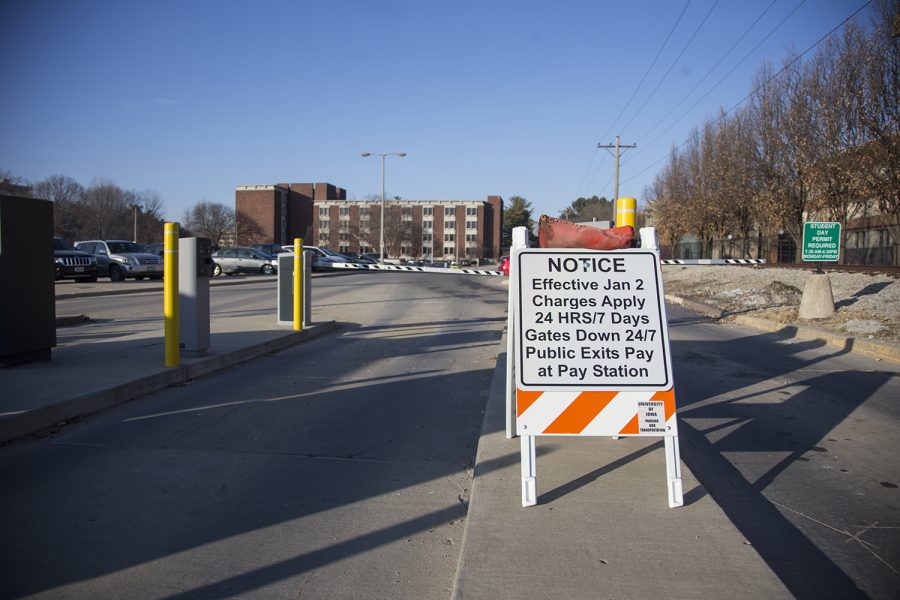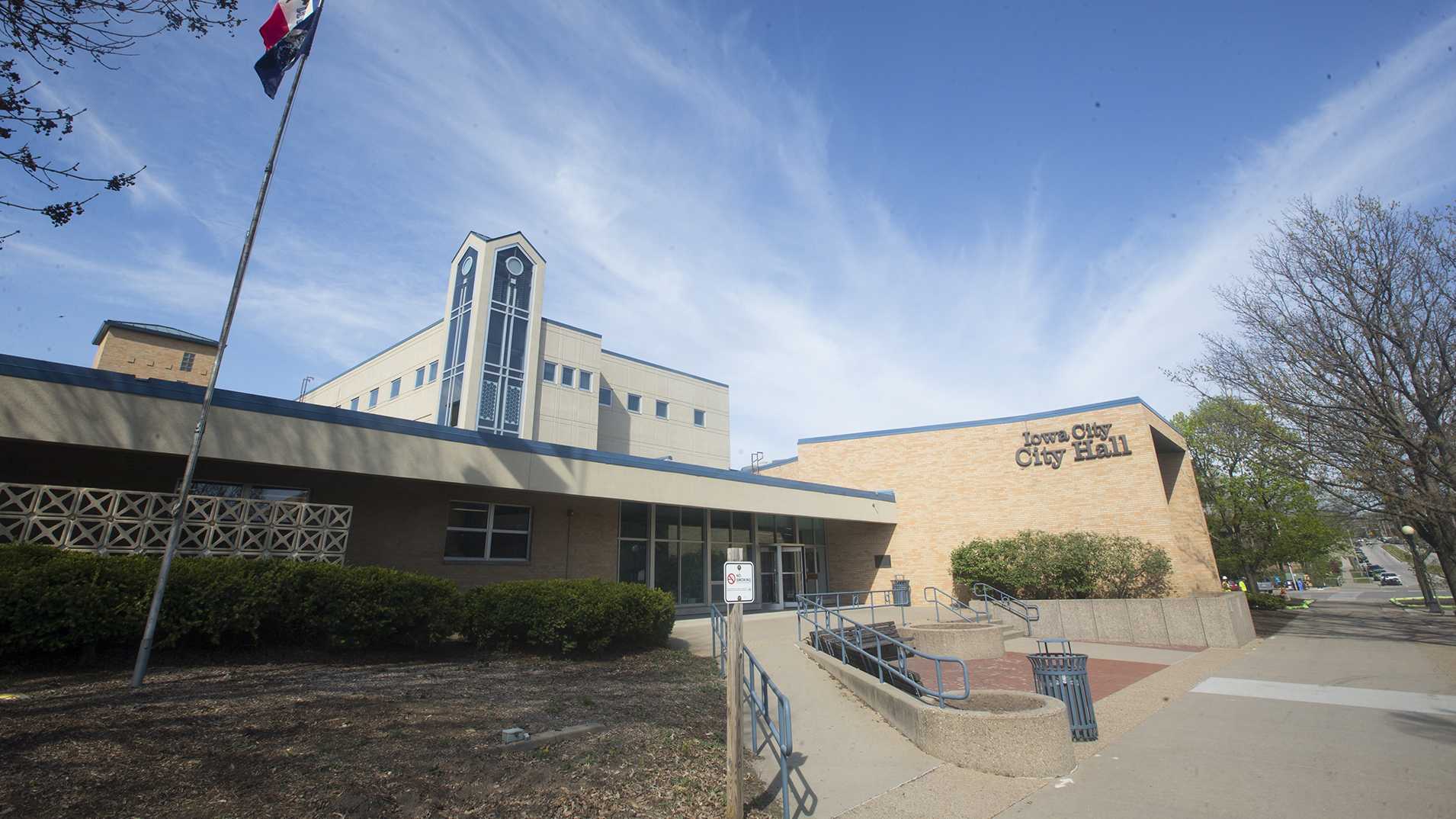New UI parking policy elicits negative response
UI students are not happy about the announcement that gates on parking lots across campus will soon require payment 24/7.
A sign outside of the Library parking lot reads that after Jan. 2nd, 2019, the lot will no longer be free after 12:00 pm each night. Photographed on Dec. 10th, 2018.
December 12, 2018
A new parking policy at the University of Iowa will require constant payment in parking lots, angering some UI students.
Four years ago, UI Parking & Transportation embarked on an initiative to universalize the operational systems of parking lots across campus, mandating that gates would require payment via machine and remain closed 24 hours a day, seven days a week.
After several technical road bumps, the IMU, Main Library, and many other campus parking lots will officially be converted to this system, a change that raises the ire of a subset of students who rely on the gates lifting after midnight without requiring payment.
“We thought we should put up signs for the number of students, and those are what got a lot of attention,” Parking & Transportation Administration Services Director Jim Sayre said. “We’ve met with UISG trying to resolve concerns; we don’t know where we’re going to land this point.”
RELATED: UI Van Pool remains one of the oldest carpool programs in the country
Sayre said original discussions for the change occurred among Parking & Transportation staff and its charter committee, which included student representatives.
“We were comfortable after having vetted the potential changes,” Sayre said. “But of course, it’s taken four years to get here, so we’ve had a turnover in students and new leadership in UISG.”
He admitted that student concern about losing access to student activities or late-night study sessions because of an inability to park is a huge concern, and as an institution, the UI wants to engage students.
Nevertheless, Sayre emphasized that physical access to the aforementioned parking lots will still be available to students. If they choose not to park there for financial reasons, they will need to find an alternative, such as the night and weekend permit.
“By having the gates raised at midnight, I think we’ve almost incentivized students to stay later than they need to on campus,” UI Parking & Transportation communications manager April Wells said. “It was an unintended consequence.”
The primary reason for the new system was to replace the antiquated one currently in place, she said. More machine-based lots will help traffic move through during rush hour and minimize the number of lost expenses, she said.
“The parking facilities four years ago weren’t capable of meeting today’s technology advances,” Wells said. “We are asking for a lot of exceptions that are not normally built into a system like this to try to accommodate the wide variety of customers we have on campus.”
In response to allegations that the change will affect student employment at Parking & Transportation, Wells said there probably will be a decrease in employment but because of attrition through graduation. Nobody will be laid off, she said.
“It actually makes sense for us to switch to a machine option instead,” Wells said. “And then we can better use our student staff where we have high demand, especially in the daytime hours.”
Ultimately, she said, the decision will fill a recurring loophole in Parking & Transportation internal audits, which show that tickets are being taken but never paid for.
However, she said, the motivation behind the decision was less about revenue and more about making the Parking & Transportation system smart. Officials will not determine the financial numbers until all the details are agreed upon between students and staff.
“The plan to lower gates 24/7 is the last element in our parking-equipment upgrade,” Parking & Transportation Associate Director Erin Shane said. “UISG has also approached us with questions, and we will meet with it soon to go over the changes.”






